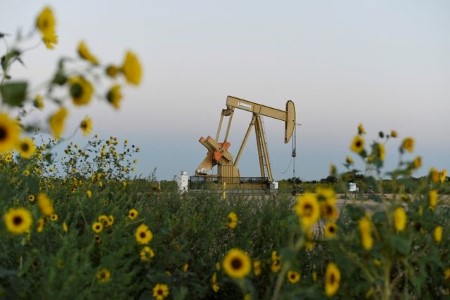




January Economic Update: Growth slows, prices rise
 DOWNLOAD
DOWNLOAD

Inflation Update: Up, up, and away?
 DOWNLOAD
DOWNLOAD

Quarterly Economic Growth Release: Growth takes on a slower pace
 DOWNLOAD
DOWNLOAD


Oil settles higher as major producers flag capacity limits

June 28 (Reuters) – Oil prices settled higher for a third day on Tuesday as major producers Saudi Arabia and the United Arab Emirates looked unlikely to be able to boost output significantly while Western governments agreed to explore ways to cap the price of Russian oil.
Brent crude futures climbed USD 2.89, or 2.5%, to settle at USD 117.58 a barrel by 12:33 p.m. EDT (1633 GMT). US West Texas Intermediate (WTI) crude settled up USD 2.19, or 2%, to USD 111.76 a barrel.
Both contracts extended the previous session’s gains of nearly 2% after the Group of Seven economic powers vowed to ratchet up existing Western pressure on Russia from sanctions over its invasion of Ukraine.
G7 leaders have agreed to explore imposing a ban on transporting Russian oil that has been sold above a certain price, aiming to deplete Moscow’s war chest.
Russian oil export revenue climbed in May even as volumes fell, the International Energy Agency said in its June report.
Western bans on Russia and its oil and gas output have led to a sharp rise in global energy prices, and other major producers have yet to implement a significant boost to supplies.
Saudi Arabia and the UAE have been seen as the only two members of the Organization of the Petroleum Exporting Countries with spare capacity to make up for lost Russian supply and weak output from other member nations.
“A seam of tight supply news bolstered the market. Two major producers, Saudi Arabia and the UAE, are said to be at, or very close to, near‑term capacity limits,” Commonwealth Bank commodities analyst Tobin Gorey said in a note.
French President Emmanuel Macron told US President Joe Biden on the sidelines of the G7 meeting that the UAE was producing at maximum capacity and Saudi Arabia could increase output by only 150,000 barrels per day, well below its nameplate spare capacity of about 2 million bpd.
“It’s seems like the rainy day barrels the market was relying on existing may not appear,” said Bob Yawger, director of energy futures at Mizuho.
Energy Minister Suhail al-Mazrouei said on Monday that the UAE was producing near maximum capacity based on its quota of 3.168 million barrels per day (bpd) under the agreement with OPEC and its allies, a group known as OPEC+.
Analysts also said that political unrest in Ecuador and Libya could tighten supply further.
Meanwhile, US crude inventories were forecast to have fallen for the last two weeks, according to Reuters polls. The government’s weekly petroleum status report that should have been published last week was delayed due to a hardware issue. The data for both weeks will published together on Wednesday.
Market shortages have led to a rebound this week, countering recession jitters that weighed on prices over the previous two weeks.
(Additional reporting by Ron Bousso and Ahmad Ghaddar in London, Sonali Paul in Melbourne and Muyu Xu in Singapore; Editing by Marguerita Choy, David Evans and David Gregorio)
This article originally appeared on reuters.com





 By Reuters
By Reuters